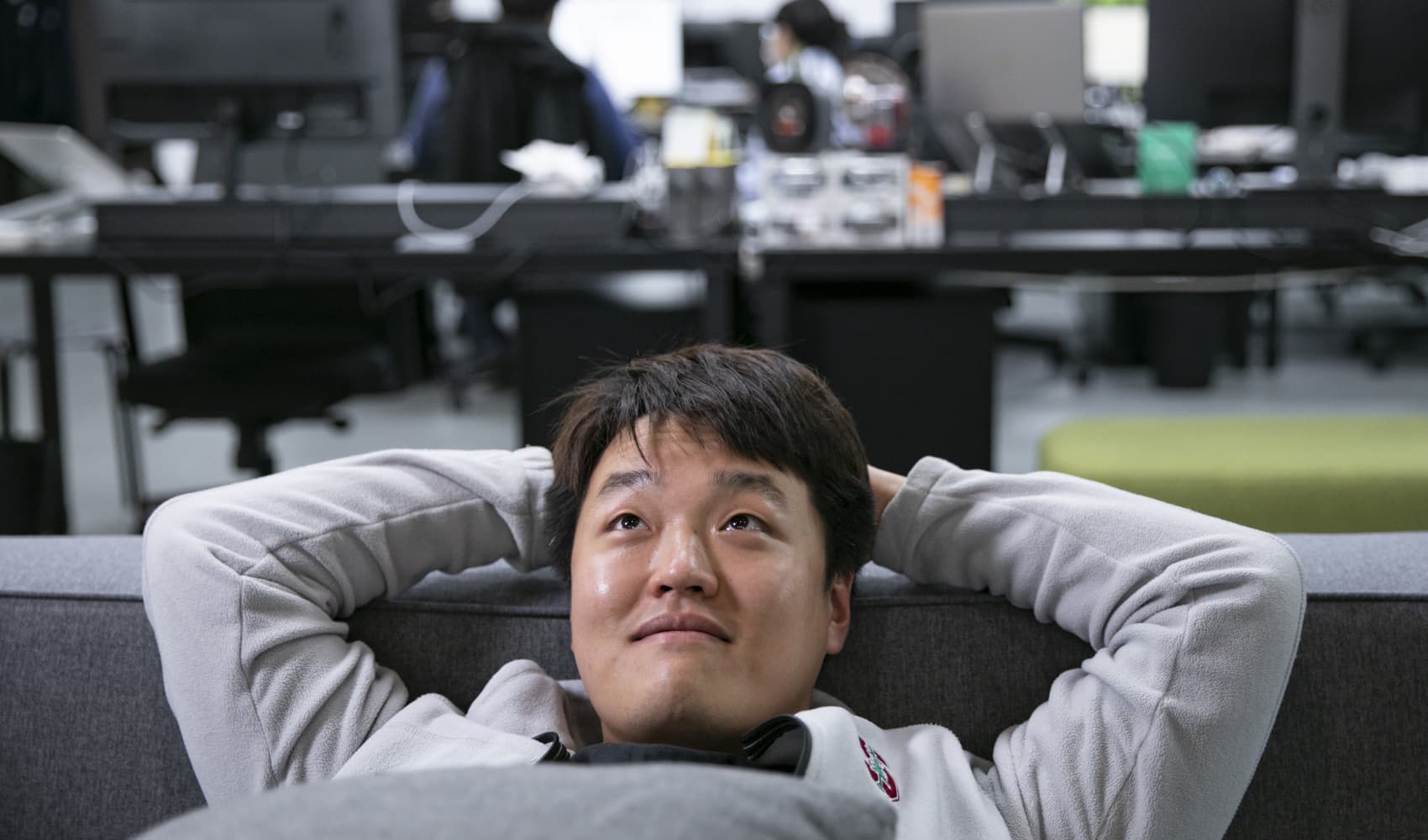
This is CNBC's live blog covering Asia-Pacific markets.
Hong Kong stocks led losses in Asia Pacific on Friday after Wall Street tumbled overnight on rate worries, while investors also digested inflation data from Japan.
Hong Kong's Hang Seng index fell 1.71%, while mainland China's CSI 300 dropped 1.11% to end at 3,601.48.
In South Korea, the Kospi ended 1.26% lower at 2,687.60, dragged by heavyweight Samsung Electronics, while the small-cap Kosdaq lost 0.85% to close at 839.41.
Heavyweight chipmaker Samsung Electronics shares fell 3.07% after Reuters reported that the South Korean tech giant's latest high bandwidth memory (HBM) chips are not yet ready for use by U.S. chipmaker Nvidia.
The Nikkei 225 slid 1.17% to end at 38,646.11, while the broad-based Topix fell 0.44% to close at 2,742.54. Investors assessed April inflation from Japan for clues on the Bank of Japan's monetary policy moves.
Japan's core inflation — which strips out fresh food and energy — eased to 2.2% from 2.6% in March, in line with expectations. Headline inflation slowed to 2.5%, down from March's 2.7% figure.
Money Report
The Australian S&P/ASX 200 also ended 1.08% lower at 7,727.60.
Wall Street continued to extend losses, despite a post-earnings rally in tech darling Nvidia. The chipmaker's shares rose 9.3% on Thursday, following a stellar earnings that topped expectations.
Feeling out of the loop? We'll catch you up on the Chicago news you need to know. Sign up for the weekly Chicago Catch-Up newsletter here.
Overnight in the U.S., the Dow Jones Industrial Average marked its worst session of the year as it slid 1.53%, with aircraft manufacturer Boeing falling 7.6% — the biggest laggard in the index.
The S&P 500 dropped 0.74%, and the Nasdaq Composite tumbled 0.39%. Earlier in the session, both the broad-market index and the tech-heavy benchmark had hit record highs.
— CNBC's Hakyung Kim and Samantha Subin contributed to this report.
China's Bilibili plunges as much as 12% on bigger first-quarter net loss
Shares of Chinese video-streaming site Bilibili plunged as much as 12% on Friday after the firm reported a wider loss for the first quarter.
Net losses widened to 764.6 million yuan, compared with 629.6 million yuan in the same period of 2023, while adjusted net losses narrowed 56% year on year to 455.9 million yuan.
Bilibili saw revenue rise 12% year on year to 5.66 billion yuan ($784.5 million) in the first quarter of 2024 and gross profit rose to 1.61 billion yuan, representing an increase of 45% year-on-year.
— Lim Hui Jie
Nvidia's most advanced chip in China sees price cuts amid weak demand: Reuters
Nvidia's most advanced AI chip for China is facing weak demand, forcing the firm to price it below a rival chip from Chinese firm Huawei, Reuters reported Friday.
There is an "abundant supply" of the H20, the most powerful Nvidia chip offered in China, signaling weak demand, the report said, citing sources.
H20 chips are being sold in some cases at an over 10% discount to Huawei's Ascend 910B - the most powerful AI chip from a Chinese company, Reuters said.
The H20 is one of three chips that were tailored for China late last year after U.S. sanctions prevented exports of advanced semiconductors to China.
— Reuters, Lim Hui Jie
Samsung Electronics shares fall after report that its HBM chips have yet to pass Nvidia tests

Samsung Electronics shares fell 2.3% after Reuters reported that the South Korean tech giant's latest high bandwidth memory (HBM) chips are not yet ready for use by U.S. chipmaker Nvidia.
Three people briefed on the problems told Reuters there were heat and power consumption issues with Samsung's chips.
The problems were related to the company's fourth-generation HBM3 chips (which are most widely used for graphics processing units for AI), and the next generation HBM3E chips that Samsung and its rivals are releasing to the market this year, according to the report.
Samsung shares weighed down the broader Kospi, which fell 1.05%.
Nvidia reported late on Wednesday that its fiscal first quarter revenue more than tripled and its data center business grew 427% from a year earlier.
— Shreyashi Sanyal
Japan inflation slows, consumer prices in April rose 2.5%
Japan's inflation eased slightly to 2.5% in April, lower than the 2.7% seen in March and marking a second straight month of slowing inflation.
Core inflation, which excludes prices of fresh food, also slowed to 2.2% from 2.6%, in line with expectations.
The so-called "core-core" inflation rate — which strips out both fresh food and energy prices and is considered by the Bank of Japan when formulating monetary policy — saw the sharpest fall to 2.4% in April from 2.9% the month before.
— Lim Hui Jie
CNBC Pro: CIO shares Nvidia alternatives to cash in on the AI theme: 'There's another way to play this'
Nvidia delivered once again, with its results proving it's showing no signs of slowing down.
The chipmaker's shares jumped in extended trading but given the "blowout earnings," Nancy Tengler of Laffer Tengler Investments said she expected to see a higher move.
"I think a lot of that has been priced in and now you'll see it trickle out as it has been into other players in in this space," the chief investment officer told CNBC's "Squawk Box Asia" on Thursday.
"We think there's another way to play this," she said.
CNBC Pro subscribers can read more here.
— Weizhen Tan
Market pricing now points to just one rate cut this year
Traders are lowering their expectations — again — for how many times the Federal Reserve will lower interest rates this year, and moving the outlook for the first cut still later.
A day after minutes from the last Fed meeting affirmed that policymakers are worried over inflation and not in a hurry to cut, traders in the fed funds futures market reduced their outlook to just one reduction in 2024. The probability of just a single cut jumped to nearly 58%, according to the CME Group's FedWatch Tool. Earlier this week the market was looking for two reductions.
At the same time, the first move lower is not expected to happen until at least September and more likely November. At the beginning of the year, traders were pricing in at least six cuts starting in March. The probability for a September cut fell to 51% Thursday afternoon.
—Jeff Cox
Geopolitical concerns will weigh more on markets
As the first-quarter earnings season winds down, investors will shift more of their attention to geopolitical concerns in the next few months before the next round of earnings, according to SimCorp.
"The Fed has been pretty clear that they're not going to cut rates, so you don't have this, 'Will they or won't they' [scenario] keeping everybody on edge. We are going to start to see a turn to some of this geopolitical stuff, whether it's its elections or the two ongoing wars," said Melissa Brown, managing director of applied research.
While events such as the U.S. and UK elections don't necessarily result in economic impacts, they do increase uncertainty, Brown noted.
"People may go from saying 'I'm just going to buy now,' to, 'Look, I'm gonna wait and see the outcome of this before I decide to commit more money to market,'" Brown said.
— Hakyung Kim
AI, semiconductor stocks jump after strong Nvidia outlook
Popular artificial intelligence and semiconductor stocks rose after Nvidia posted strong earnings and a robust forecast that showed continued demand for artificial intelligence chips.
Super Micro Computer popped 10%, while Advanced Micro Devices jumped nearly 4%. Marvell Technology, Micron Technology, Applied Materials and the VanEck Semiconductor ETF added about 3% each, while ASML Holding rallied about 5%.
Nvidia shares were last up more than 9% and 110% on a year-to-date basis
— Samantha Subin






